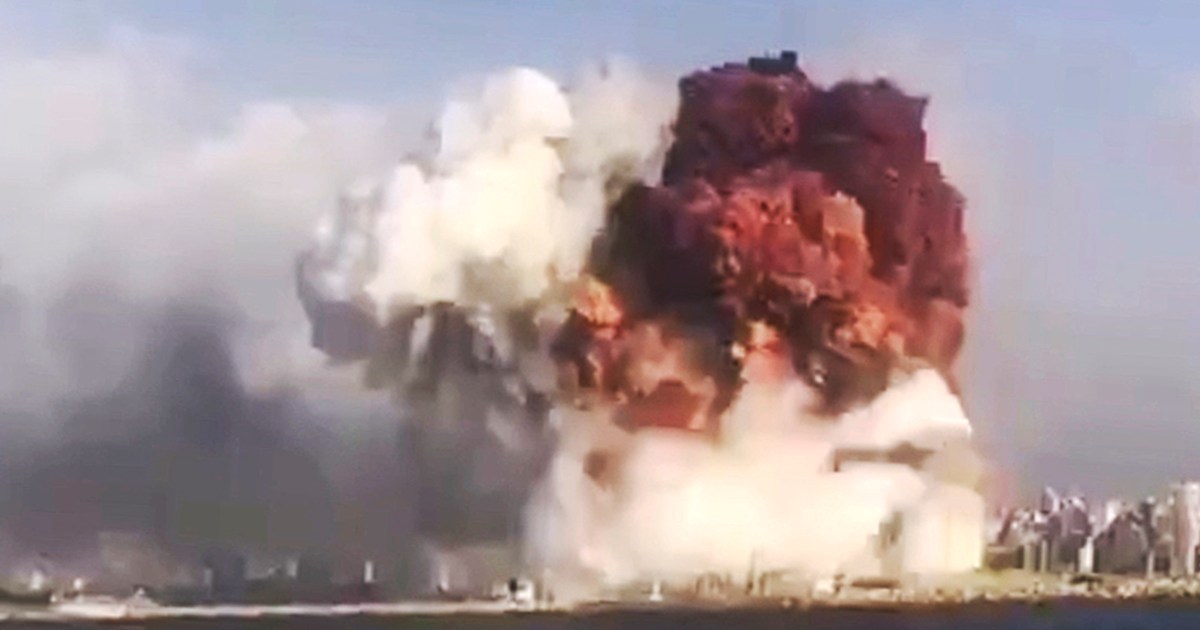An Israeli seismologist and ammunition expert said today, Thursday, that the explosion in the Beirut port was preceded by a series of explosions, the most recent of which was a fireworks explosion that apparently led to the explosion of the depot filled with ammonium nitrate.
The Israeli "Jerusalem Post" newspaper quoted Boaz Hayon as saying that six explosions occurred before the main explosion.
Hayon, a former Israeli military engineering officer who is currently overseeing safety standards for the use of explosives in Israel, added that six initial explosions were tracked by a group of seismic sensors installed 70 km off the Lebanese coast by the International Geological Project.
Hayon explained that he could not be sure that the cause of the explosion was those small explosions, but he confirmed that these explosions were in the same place, and the international geological project could not be reached for comment.
Lebanese officials blamed the blast, which killed at least 172 people and left most of the capital in ruins, for setting fire to a huge stockpile of ammonium nitrate after it had been stored insecurely in the port for years.
Hayon explained that the first five explosions, each of which were of a size commensurate with several tons of explosives, may have occurred underground and were not heard by Beirut's witnesses.
He pointed out that there is another indication of the underground explosions, which is the depth of the hole of 43 meters that appeared in the port, which he said could not have been caused by the explosion of the amount of ammonium nitrate reported by the Lebanese authorities, indicating that this hole could have been less deep. Maximum of 25 or 30 meters.
He confirmed that the sixth explosion was larger than the previous five and is consistent with a fire observed near the ammonium nitrate warehouse.
He added that the television footage of that fire made him convinced that it was "categorically" caused by the burning of fireworks, and that this was sufficient to ignite the ammonium nitrate.
Israel Defense, a leading magazine with close ties to the Israeli military, described the sequence as being consistent with munitions that detonated by mistake or an act of sabotage.
The magazine quoted Hayon that such a sequence could be consistent with "serial-activated weapons systems," which may have been stored in the port and detonated by mistake, or deliberately set off in an act of sabotage.
Hayon did not provide any evidence indicating that sabotage had occurred, and he refused to go into further details.

